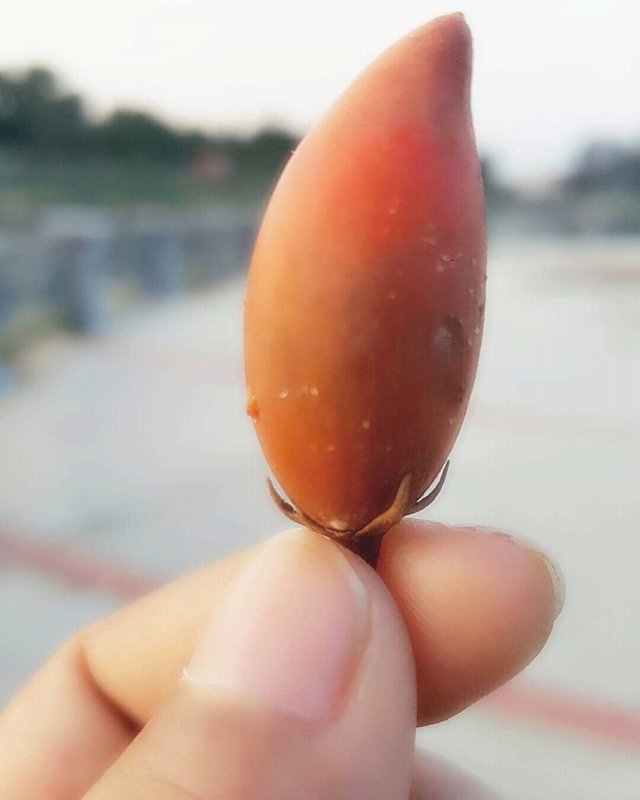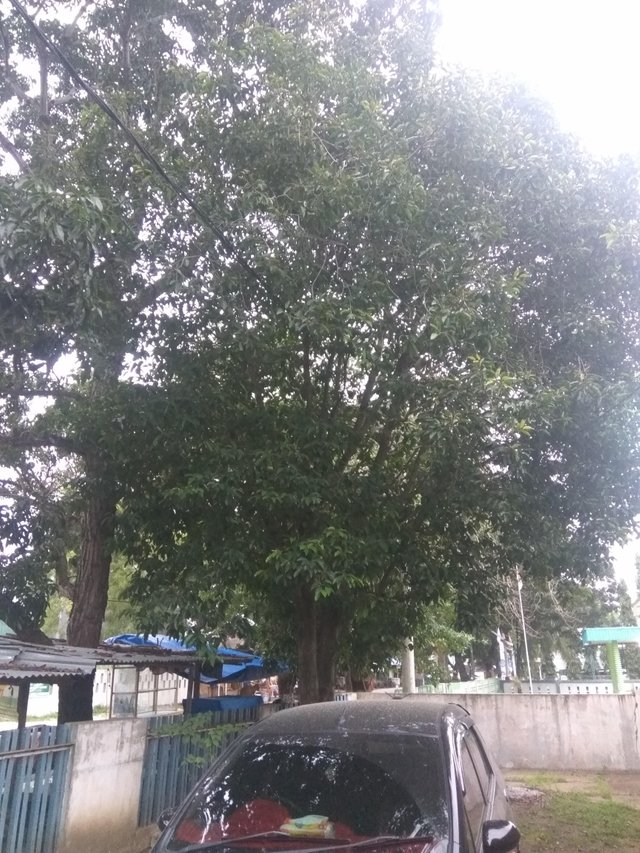Know the Mimusops elengi and Its Benefits #Mengenal Pohon Tanjung dan Manfaatnya
Dear steemian fiends :


WE recognize the Cape Tree as a plant that is often used as a shade with a lush tangkuknya. But it turns out, he also save a lot of benefits.
The flowers can be used as fragrances, clothes, room or as decoration. The fruit can also be eaten with a slightly sweet taste sepat. He also drug efficacy.
The origin of the Cape.
The Tanjung (Mimusops elengi) tree has a distinctive characteristic of fragrant flower and shaded flowers. He used to be planted in gardens and roadside as a shade.
Originally it is said this tree originated from India, Sri Lanka, and Burma. Since centuries ago, he has entered the archipelago and is known by many names.
In Bugis, Makassar is called tanjong, in Bima tanjo, in Bali known as force or waja. In Aceh he descended the temporal cangè while in North Sulawesi called kahekis, karikis, kariskis or rekes.
Morphology of Cape Trees.
Cape trees are generally medium-sized and can grow to a height of 25 meters. It has single leaves, scattered and long stemmed.
The youngest leaves have brown hair and soon fall. Leaf blobs oval to oval with a length of 9 -16 cm, edged flat but wavy.
The flowers are interdependent, either alone or both hang in the armpits of the leaves, berilangan 8 and smells fragrant. Its fragrance flowers easily fall out. These fallen flowers are often collected in the morning to scent clothes, rooms or decoration.
Efficacious Drugs.
Tanjung also proved beneficial for health. Pepper stew water stew water is used as a reinforcing drug and fever medicine. The pepagan stew and its flowers are also used to relieve the frost accompanied by fever.
The decoction of bark of Tanjung tree is efficacious to overcome toothache and eliminate bad breath. Way, the cooking water is used as a mouthwash for at least four days in a row. Cooking water is also useful for washing the wound.
The leaves also save a lot of benefits. Fresh Cape leaves can be used as a poultice headache with a smooth crushed way.
The leaves of Tanjung can be shredded as tobacco and then mixed a little wood shavings secang and rolled with old banana leaves. This herb is then smoked like a cigarette to treat mouth sores.
Its roots are mixed with vinegar can be used to treat a sore throat. This root bark contains a lot of tannins and a bit of a non-toxic alkaloid.
Fragrances.
Tanjung fruit is also edible. When young, the Cape fruit is green and if it is cooked will be reddish yellow. It was sweet and rather spicy.
Flower Cape is widely used as fragrances. To scent the room, how to put a handful of flowers on the headland in the room.
As an aroma therapy, take a handful of flowers and then boiled Cape in 4 liters of water to boil. Then mix with cold water until the temperature is lukewarm. The mix is used for bathing, then your body will smell and warmth will make the mind feel comfortable.
To embroider the hair, soak the flower cape in coconut oil and then smeared into the hair.
Properties of Wood.
Tanjung Wood is solid, heavy, and hard. Usually used as a stake material in the manufacture of boats, spear stalks and other tooling stalks, wardrobes and furniture, as well as for the pole of the house. Also good for carving, sculpture, floor covering, bridges, and for railway bearings.
Tanjung Wood is classified as wood which is easy to work with very good result. It can be shaved, drilled, perforated square, and sanded with excellent results, and shaped and grounded with good results to excellent.
The wood of the Cape porch is dark brown, while the color of the wood is slightly lighter with clear borders. The texture is smooth and evenly, with the direction of the fiber straight, slightly wavy, or slightly chime. The density of wood from the headland ranges from 0.92 - 1.12 (average 1.00), and belongs to the strong class I.
The durability of cape wood is included in class I-II. The durability of cape wood against wooden fungus includes class II, while against dry wood termites including class IV (not durable, red). In the meantime, its durability is moderate.
Unfortunately, the cape wood is not easily dried with good results. Because, when dried, this wood tends to curve, break the tip, and crack the surface.
SALAM STEEMIT INDONESIA

